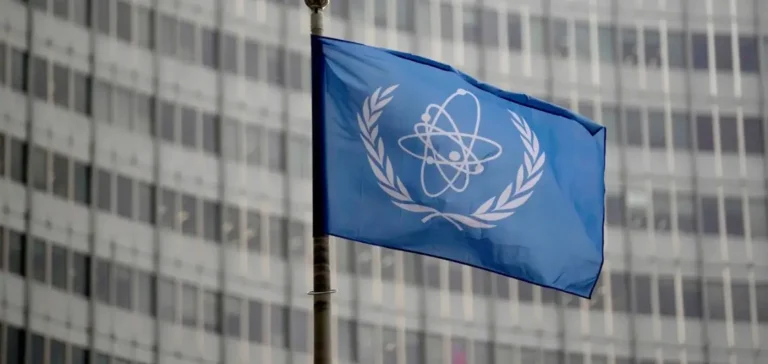On the night of June 12-13, Israel initiated a large-scale military operation named Operation Rising Lion, aimed specifically at neutralizing Iran’s nuclear capabilities. The aerial strikes concentrated primarily on uranium enrichment facilities at Natanz, Fordow, and key strategic sites in Tehran. This operation followed repeated warnings by the international community, consistently ignored by Tehran.
According to recent data provided by the International Atomic Energy Agency (IAEA), as of May 17, 2025, Iran possessed an unprecedented stockpile of 408.6 kg of uranium enriched to 60%, nearing weapons-grade levels suitable for nuclear weapon development. This represents a rapid increase of approximately 134 kg in just three months, clearly indicating deliberate acceleration of the Iranian nuclear program. Currently, Iran operates nearly 21,900 centrifuges, including 14,689 advanced IR-4, IR-6, and IR-2m models, capable of enriching uranium at an alarming rate of 37.5 kg per month, potentially enabling Iran to produce approximately 456 kg of 60%-enriched uranium annually.
Persistent Violations of International Agreements
Iran’s actions have clearly breached international obligations originally defined by the Joint Comprehensive Plan of Action (JCPOA), signed in 2015. Under the original agreement, Iranian uranium stockpiles were strictly limited to 300 kg enriched to just 3.67%. After the Trump administration withdrew from the agreement in 2018, aiming for stricter measures against Iran, Tehran gradually violated these limits as diplomatic retaliation, establishing secret nuclear sites and repeatedly obstructing IAEA inspections.
Former U.S. President Donald Trump repeatedly sought to negotiate a more restrictive deal, explicitly emphasizing the U.S. goal to prevent Iran from acquiring military nuclear capability. Trump had publicly warned of possible military intervention if negotiations failed—warnings consistently ignored by Iran, which instead escalated its nuclear program at an accelerated pace.
Existential Threats and Israeli Justification
Israel, whose existence has repeatedly been threatened by Iranian authorities, resorted to preventive strategy. Iran, notably through statements by its Supreme Leader, has frequently described Israel as a “cancerous tumor that must be removed,” further intensifying Israeli security concerns. Prime Minister Benjamin Netanyahu confirmed that military operations exclusively targeted infrastructure and personnel directly involved in Iran’s nuclear and military program, explicitly excluding civilian facilities from the target list.
Israel’s operation prioritized precise targets: Natanz, Iran’s main uranium enrichment center; Fordow, a fortified underground enrichment facility; and nuclear command centers in Tehran. Key figures in Iran’s nuclear program, including Hossein Salami, commander of the Islamic Revolutionary Guard Corps (IRGC), and Mohammad Bagheri, Iran’s chief of staff, were specifically targeted and eliminated, aiming to substantially disrupt Iran’s nuclear and military capabilities. <h2>Iranian Retaliation and Regional Escalation</h2>
In retaliation, Iran launched a massive attack, deploying over one hundred armed drones aimed at Israeli territory. Israeli air defenses intercepted all drones, though the incident triggered widespread air raid alerts in both Israel and Jordan, significantly disrupting civilian and diplomatic activities. Concurrently, Tehran declared a nationwide state of emergency and imposed a complete media blackout, underscoring the crisis’s gravity.
The sudden escalation triggered an immediate spike in global oil prices, surging over 6%, reflecting market fears of prolonged conflict potentially disrupting crucial Persian Gulf oil exports. Numerous countries swiftly evacuated non-essential diplomatic personnel, signaling concerns of an extended regional conflict.
International Diplomacy Under Severe Strain
Israel’s strikes occurred on the eve of planned nuclear negotiations between Iran and the United States in Oman, significantly complicating an already delicate diplomatic environment. While the United States publicly supports Israel’s right to defend itself, it has urged restraint to avoid broader regional conflict.
Conversely, Russia and China, both holding significant economic interests in Iran, particularly in energy and commerce, strongly condemned Israel’s actions. These two powers accused Israel of intensifying the regional crisis and disrupting ongoing diplomatic efforts, highlighting deep international divisions over managing the Iranian nuclear issue.
The situation remains volatile, with the coming days crucial in determining whether the crisis will shift towards a diplomatic de-escalation or if the current tensions will escalate further into prolonged armed conflict, directly threatening regional and global stability.






















